Abstract
A pertinent, legible and complete medical record facilitates good patient care. The recording of the symptoms, signs and lab findings which are relevant to a patient's condition contributes importantly to the medical record. The consideration and documentation of other disease states known to be related to the patient's primary illness provide further enhancement. We propose that developing sets of disease-specific core elements which a physician may want to document in the medical record can have many benefits. We hypothesize that for a given disease, terms with high importance (TI) and frequency (TF) in the DX-plain, QMR and Iliad knowledge bases (KBs) are terms which are used commonly in the medical record, and may be, in fact, terms which physicians would find useful to document. A study was undertaken to validate ten such sets of disease-specific core elements. For each of ten prevalent diseases, high TI and TF terms from the three KBs mentioned were pooled to derive the set of core elements. For each disease, all patient records (range 385 to 16,972) from a computerized ambulatory medical record database were searched to document the actual use by physicians of each of these core elements. A significant percentage (range 50 to 86%) of each set of core elements was confirmed as being used by the physicians. In addition, all medical concepts from a selection of full text records were identified, and an average of 65% of the concepts were found to be core elements.(ABSTRACT TRUNCATED AT 250 WORDS)
Full text
PDF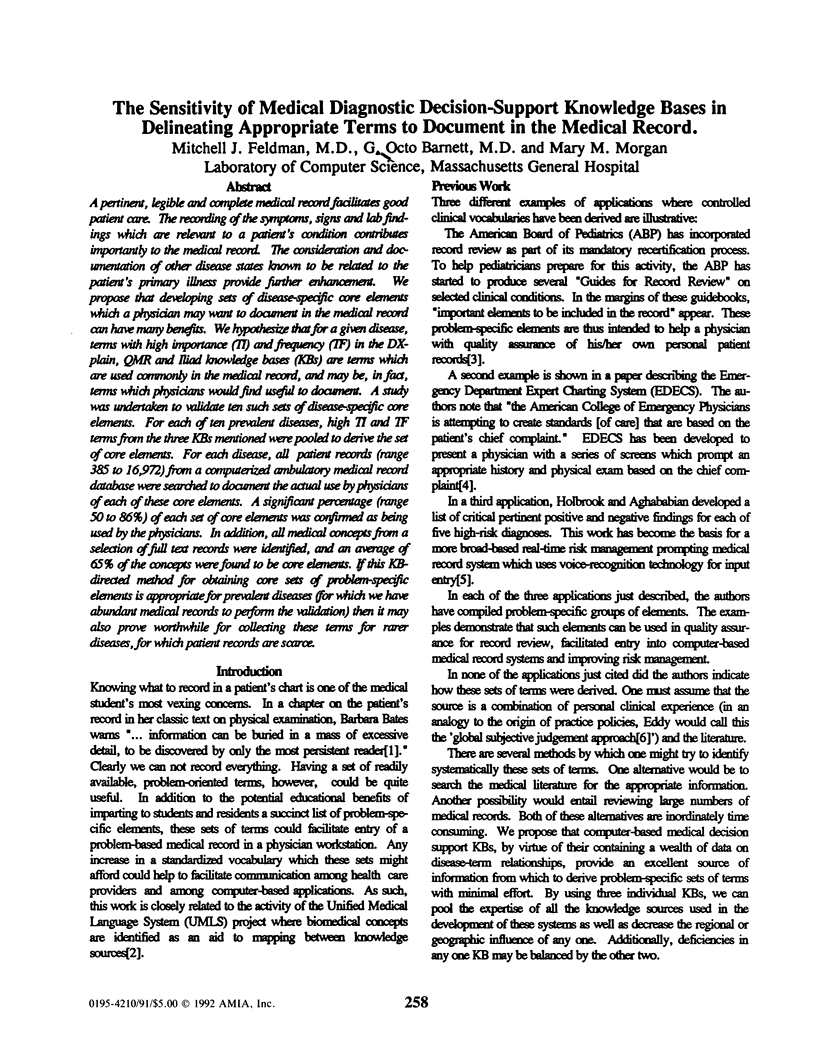
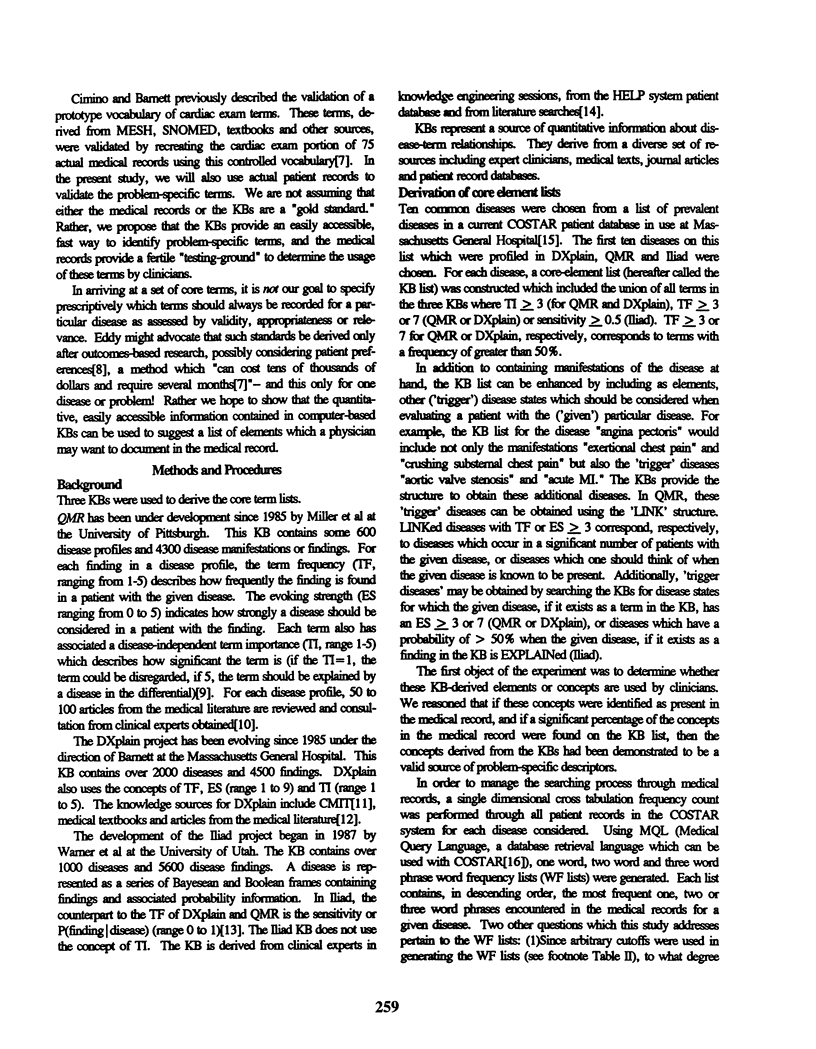
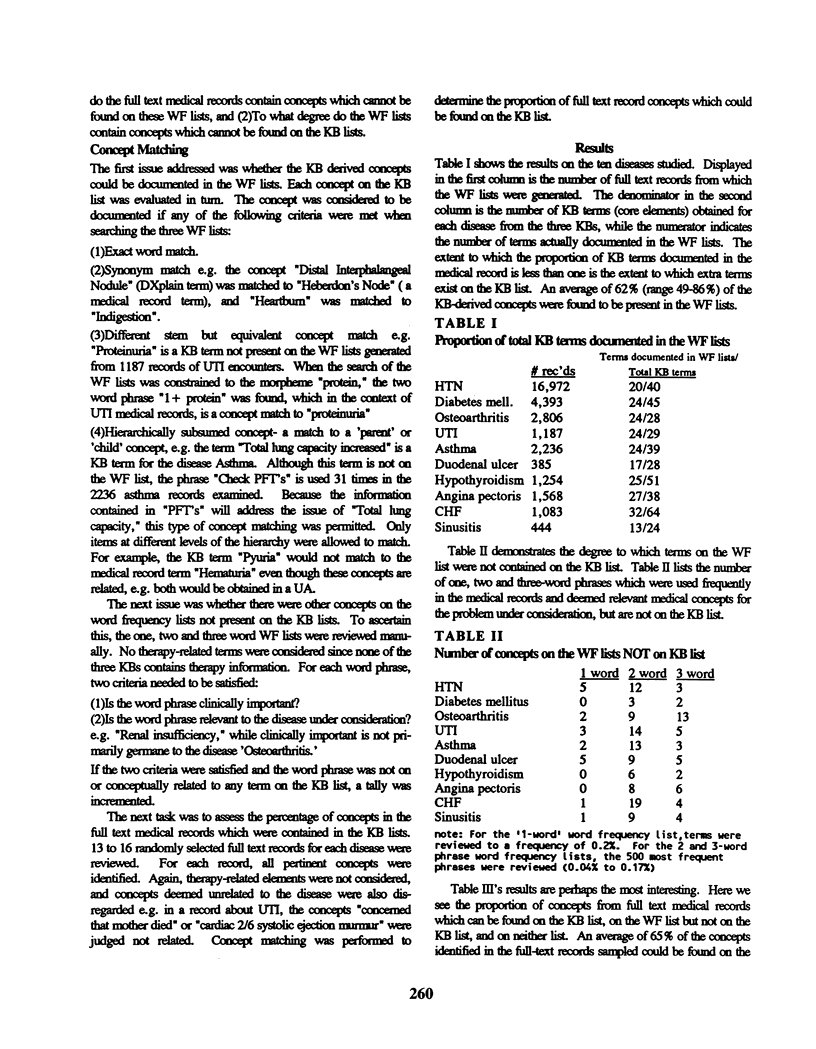
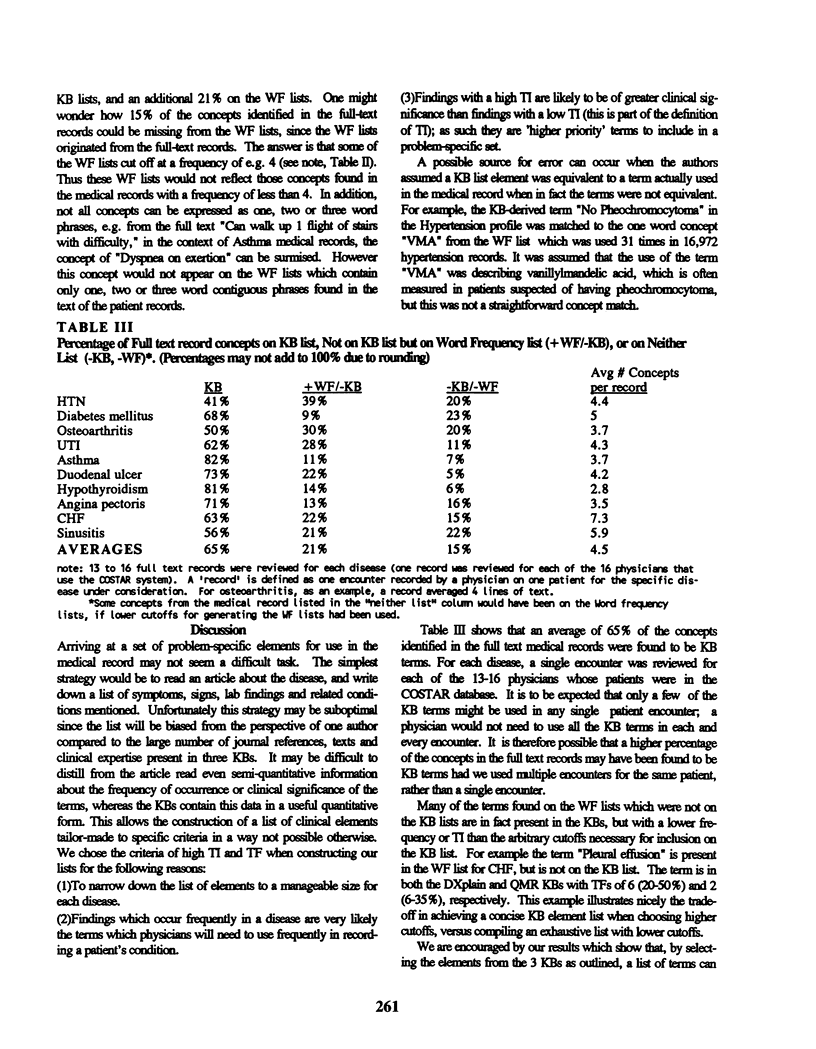
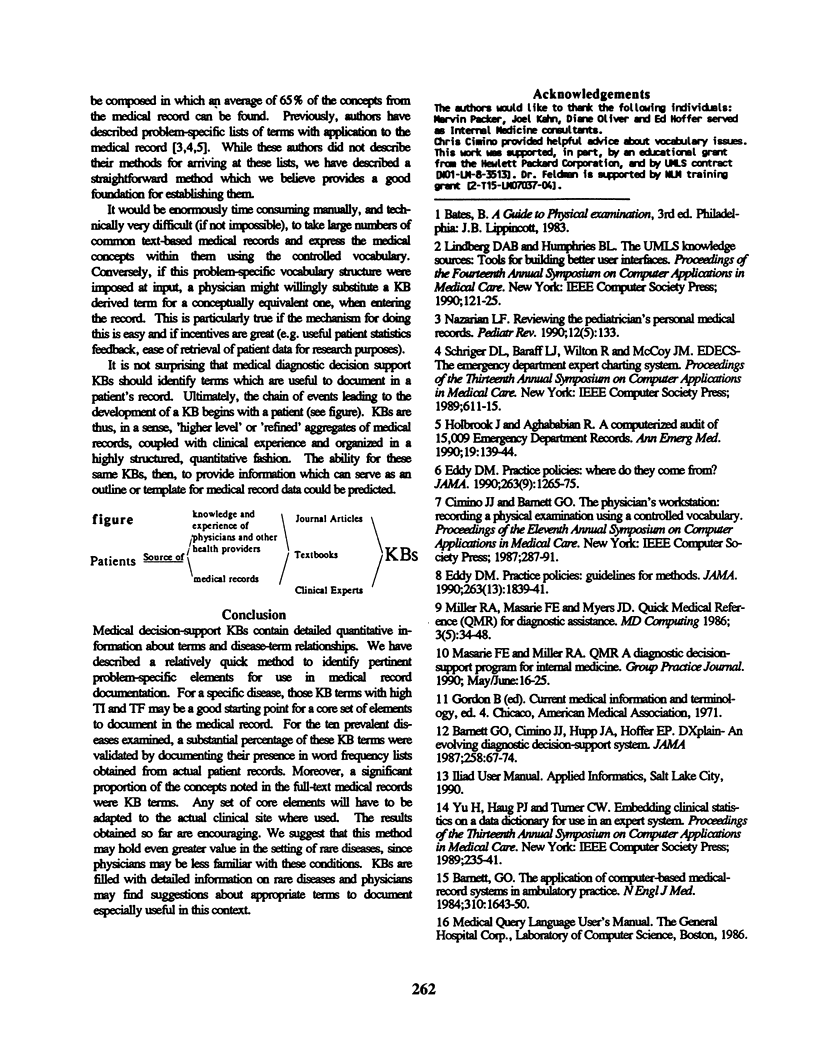
Selected References
These references are in PubMed. This may not be the complete list of references from this article.
- Barnett G. O., Cimino J. J., Hupp J. A., Hoffer E. P. DXplain. An evolving diagnostic decision-support system. JAMA. 1987 Jul 3;258(1):67–74. doi: 10.1001/jama.258.1.67. [DOI] [PubMed] [Google Scholar]
- Eddy D. M. Practice policies: where do they come from? JAMA. 1990 Mar 2;263(9):1265–passim. doi: 10.1001/jama.263.9.1265. [DOI] [PubMed] [Google Scholar]
- Miller R., Masarie F. E., Myers J. D. Quick medical reference (QMR) for diagnostic assistance. MD Comput. 1986 Sep-Oct;3(5):34–48. [PubMed] [Google Scholar]


